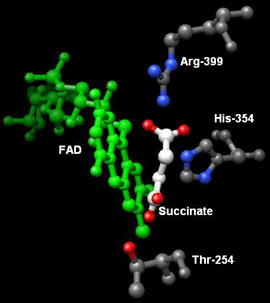Researchers identify mechanism behind treatment for rare brain disorder
Findings may lead to improvements in therapy
Riboflavin (vitamin B2) helps children overcome the devastating effects of a hereditary brain disorder by helping one protein fill in for a disabled protein, according to a study by researchers at the National Institutes of Health (NIH) and other institutions. The findings offer the prospect that researchers may be able to improve the treatment for infantile leukoencephalopathy, a rare brain disorder resulting in blindness, debilitation, and early death.
The study appears in Cell Metabolism and was conducted by Nunziata Maio, Ph.D, and Tracey Rouault, Ph.D., of NIH’s Eunice Kennedy Shriver National Institute of Child Health and Human Development and colleagues in Italy and the United Kingdom.
This page was last updated on Friday, January 21, 2022
